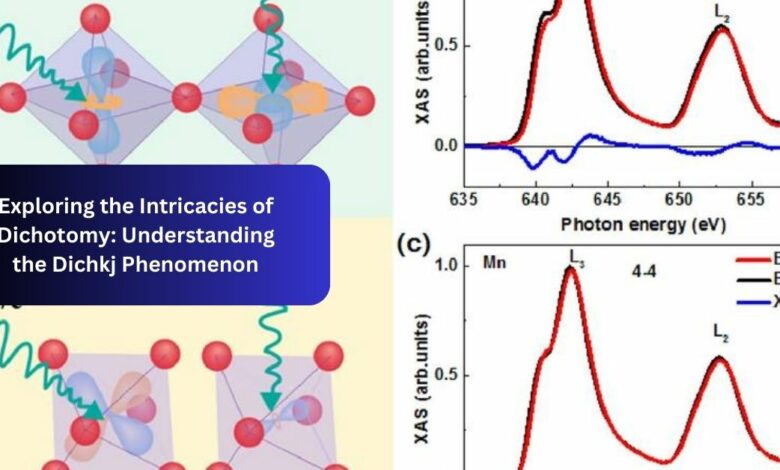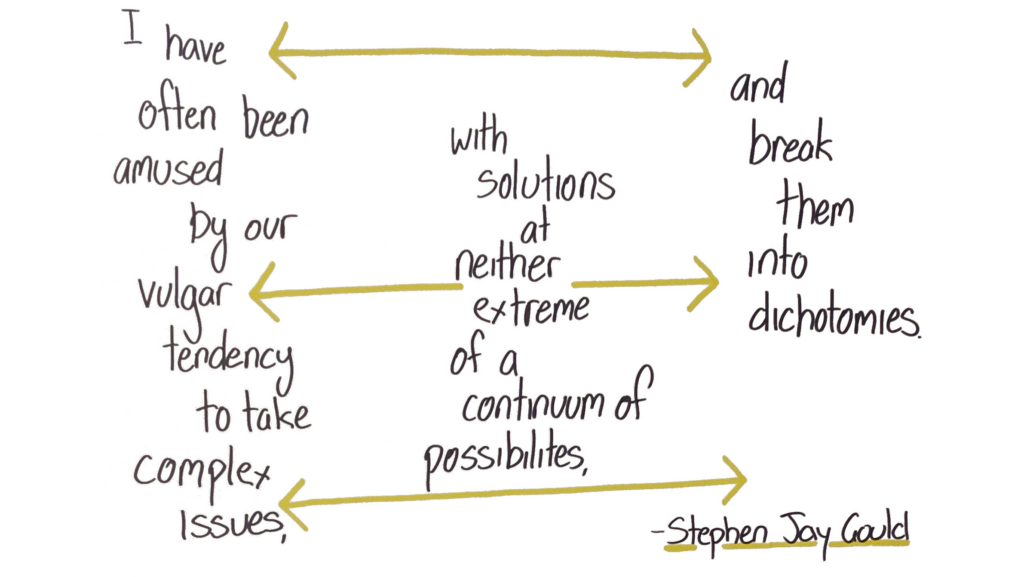Exploring the Intricacies of Dichotomy: Understanding the Dichkj Phenomenon

Dichotomy, a concept deeply ingrained in various aspects of our lives, often manifests in unexpected ways, presenting a duality that challenges conventional understanding.
In this discourse, we delve into the multifaceted nature of dichotomy, shedding light on its nuanced presence across diverse domains.
Dichkj in Philosophy: Unraveling Opposing Forces
In philosophical discourse, dichotomy serves as a cornerstone, epitomizing the fundamental clash between opposing ideologies.
From Plato’s theory of Forms to Descartes’ mind-body dualism, dichotomy permeates philosophical thought, compelling thinkers to grapple with the dichkj inherent in existence.
Dichotomy in Nature: Harmony Amidst Contrast
Nature, with its awe-inspiring beauty, often showcases the dichotomy between creation and destruction, growth and decay.

The dichkj of predator and prey, life and death, underscores the intricate balance sustaining ecosystems worldwide, emphasizing the symbiotic relationship between contrasting elements.
Dichotomy in Society: Navigating Cultural Dualities
Society mirrors dichotomy in its cultural, social, and political realms, where contrasting ideologies collide, giving rise to complex dichotomies.
Whether it’s the tension between tradition and modernity, individualism and collectivism, or liberty and security, dichotomy permeates societal structures, shaping collective consciousness.
Dichotomy in Psychology: The Mind’s Complex Terrain
Within the realm of psychology, dichotomy elucidates the intricate workings of the human mind, illuminating the juxtaposition between conscious and unconscious processes.
Freudian theory, with its emphasis on the id-ego-superego trichotomy, highlights the perpetual dichkj between primal urges and societal constraints.
Dichotomy in Technology: Balancing Innovation and Ethical Considerations
In the technological landscape, dichotomy emerges as advancements push the boundaries of innovation while raising ethical dilemmas.
The dichkj between progress and responsibility becomes evident in debates surrounding artificial intelligence, genetic engineering, and data privacy, prompting introspection on the ethical ramifications of technological pursuits.
Dichotomy in Art: Expressing Contradictions Through Creativity
Artistic expression often serves as a canvas for dichotomy, allowing artists to explore contrasting themes and emotions.
From the chiaroscuro technique in Renaissance paintings to the juxtaposition of light and darkness in literature, dichotomy enriches artistic endeavors, offering a glimpse into the human experience.
Dichotomy in Economics: The Balancing Act of Supply and Demand
Economics, as the study of allocation and distribution of resources, is rife with dichotomy, particularly evident in the interplay between supply and demand.
The dichotomy of scarcity and abundance underscores economic decision-making, where limited resources must be allocated efficiently amidst competing needs and desires.
Market economies thrive on the dichkj between producers and consumers, as the forces of supply and demand dictate price levels and market equilibrium.
Moreover, economic ideologies such as capitalism and socialism represent stark dichotomies, embodying contrasting approaches to wealth distribution and market regulation.
Dichotomy in Ethics: Navigating Moral Grey Areas
Ethical dilemmas often present themselves as dichotomies, forcing individuals to navigate the intricate balance between right and wrong.
The dichkj between utilitarianism and deontology exemplifies contrasting ethical frameworks, with the former prioritizing the greatest good for the greatest number and the latter emphasizing adherence to moral principles regardless of consequences.
Moreover, moral relativism highlights the dichotomy between cultural norms and universal ethical standards, raising questions about the subjectivity of moral judgments and the role of context in ethical decision-making.
Dichotomy in Language: Exploring Linguistic Dichotomies
Language, as a tool for communication and expression, exhibits dichotomy through various linguistic dichotomies. The dichkj between spoken and written language underscores the differences in communication mediums, each with its nuances and complexities.
Furthermore, linguistic dichotomies such as phonetics versus phonology, syntax versus semantics, and prescriptive versus descriptive grammar highlight the diverse dimensions of language study, showcasing the dichotomy between structure and meaning, form and function.
Dichotomy in Education: Balancing Tradition and Innovation
Education, as a conduit for knowledge transmission and societal progress, grapples with the dichotomy between tradition and innovation.
The dichkj between traditional pedagogical methods and modern educational approaches reflects contrasting perspectives on learning and teaching.
Moreover, the dichotomy between standardized testing and personalized learning underscores debates about educational equity and individualized instruction.
As educational institutions evolve to meet the demands of a rapidly changing world, reconciling the dichotomy between preserving educational traditions and embracing innovative practices becomes imperative for fostering lifelong learning and intellectual growth.
Dichotomy in Religion: Exploring Spiritual Dualities
Religion, as a cornerstone of human culture and belief systems, embodies dichotomy in its diverse manifestations and interpretations.
The dichkj between faith and reason has been a central theme in religious discourse, with believers grappling with the tension between religious doctrines and rational inquiry.
Moreover, the dichotomy between orthodoxy and heterodoxy underscores the diversity of religious beliefs and practices, highlighting the perennial struggle between tradition and reform within religious communities.

Additionally, the dichotomy between transcendence and immanence reflects contrasting views on the nature of the divine, with some religions emphasizing a transcendent deity beyond human comprehension and others emphasizing divine presence within the material world.
Dichotomy in Healthcare: Balancing Cure and Care
Healthcare, as a vital component of human well-being, confronts the dichotomy between curing diseases and caring for patients holistically.
The dichkj between biomedical interventions and holistic healing approaches underscores contrasting paradigms in healthcare delivery, with Western medicine often prioritizing symptom management and disease eradication, while alternative medicine emphasizes the interconnectedness of mind, body, and spirit in promoting health and wellness.
Furthermore, the dichotomy between curative care and palliative care reflects differing priorities in addressing acute illnesses versus chronic conditions, highlighting the importance of patient-centered approaches that prioritize quality of life and dignity in end-of-life care.
Dichotomy in Environmentalism: Balancing Conservation and Development
Environmentalism, as a movement advocating for the protection of natural ecosystems, grapples with the dichotomy between conservation and development.
The dichkj between preserving pristine wilderness areas and promoting economic growth underscores conflicting priorities in environmental policy and resource management.
Moreover, the dichotomy between anthropocentrism and ecocentrism reflects contrasting views on humanity’s relationship with the natural world, with some advocating for sustainable development that balances human needs with environmental conservation, while others prioritize the intrinsic value of nature independent of human interests.
As the global community confronts pressing environmental challenges such as climate change and biodiversity loss, reconciling the dichotomy between conservation and development becomes imperative for achieving ecological sustainability and safeguarding the planet for future generations.
Conclusion:
Dichotomy, with its inherent tension and complexity, permeates every facet of our existence, serving as a constant reminder of the inherent contradictions within the world.
Whether in philosophy, nature, society, psychology, technology, or art, the dichkj phenomenon underscores the intrinsic duality that shapes our perceptions and experiences.
Embracing this dichotomy fosters a deeper understanding of the intricacies of existence, challenging us to navigate the delicate balance between opposing forces in our quest for knowledge and enlightenment.




